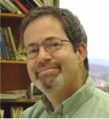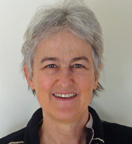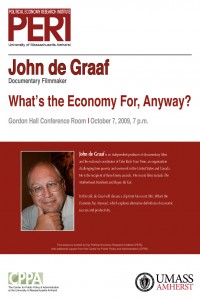This profile of Lee Badgett announcing her upcoming Distinguished Faculty Lecture appeared in a recent edition of UMass In The Loop.
Badgett to examine gay marriage in Distinguished Faculty Lecture
 M.V. Lee Badgett, professor of Economics and director of the Center for Public Policy and Administration, will deliver the first Distinguished Faculty Lecture in this year’s series on Monday, Nov. 9 at 4 p.m. in the Bernie Dallas Room in Goodell Hall.
M.V. Lee Badgett, professor of Economics and director of the Center for Public Policy and Administration, will deliver the first Distinguished Faculty Lecture in this year’s series on Monday, Nov. 9 at 4 p.m. in the Bernie Dallas Room in Goodell Hall.
Badgett’s lecture is titled “From I Can’t to I Do: When Gay People Get Married.” Five years after Massachusetts became the first U.S. state to permit same-sex marriage, local and global debates still focus on several key questions. These include whether gay people will change marriage or whether marriage will change gay people. There is also debate about whether we are moving too fast in changing marriage laws. Drawing on the Massachusetts experience and extensive data from the Netherlands, Badgett seeks to address these questions. She will compare her research findings with what happens in other countries and states with and without legal marriage rights for same sex couples.
A faculty member since 1997, she is currently professor of Economics and director of the Center for Public Policy and Administration. Badgett also serves as research director at the Williams Institute at the University of California, Los Angeles School of Law. Badgett’s current research interests include sexual orientation and discrimination in labor markets, family structures and family policy, especially same-sex partner recognition in the U.S. and in Europe and domestic partner health care and pension benefits.
She is the author of “When Gay People Get Married: What Happens When Societies Legalize Same-Sex Marriage,” published in August. Badgett is also the co-editor along with Jeff Frank of “Sexual Orientation Discrimination: An International Perspective,” published in 2007 and author of “Money, Myths and Change: The Economic Lives of Lesbians and Gay Men,” published in 2001. She is a frequent commentator in the news media and has appeared in magazines and newspapers across the U.S., including the New York Times, Slate, and The Nation.
Badgett was a visiting professor at the UCLA School of Law from 2005-07 and during the summer of 2008. She was a visiting researcher at the Amsterdam School for Social Science Research at the University of Amsterdam in 2003-04; assistant professor at the School of Public Affairs at the University of Maryland, College Park from 1990-97; was visiting assistant professor in women’s studies and lesbian and gay studies at Yale University from 1995-96 and was a research analyst for the National Commission for Employment Policy at the U.S. Department of Labor in the summer of 1994.
Badgett earned her bachelor’s degree in economics from the University of Chicago in 1982 and a doctorate in economics from the University of California, Berkeley, in 1990.
Faculty members in the series receive a Chancellor’s Medal following their lectures. The Chancellor’s Medal is the highest honor bestowed on individuals for exemplary and extraordinary service to the campus.
A reception follows the lecture, which is sponsored by the offices of the chancellor and the provost.
November 3, 2009.







 M.V. Lee Badgett, professor of Economics and director of the Center for Public Policy and Administration, will deliver the first Distinguished Faculty Lecture in this year’s series on Monday, Nov. 9 at 4 p.m. in the Bernie Dallas Room in Goodell Hall.
M.V. Lee Badgett, professor of Economics and director of the Center for Public Policy and Administration, will deliver the first Distinguished Faculty Lecture in this year’s series on Monday, Nov. 9 at 4 p.m. in the Bernie Dallas Room in Goodell Hall. sponsored by PERI, CPPA, and the Department of Economics at Gordon Hall on Wednesday, October 7, 2009.
sponsored by PERI, CPPA, and the Department of Economics at Gordon Hall on Wednesday, October 7, 2009.